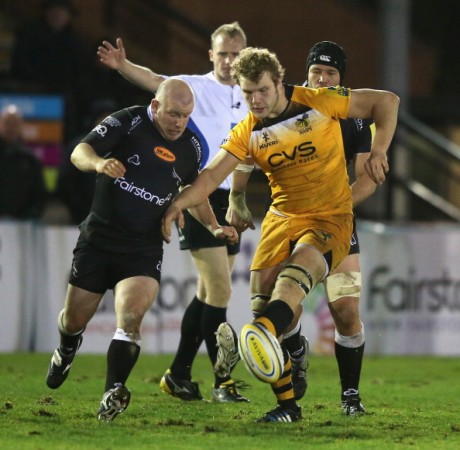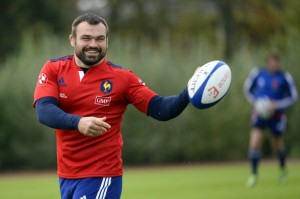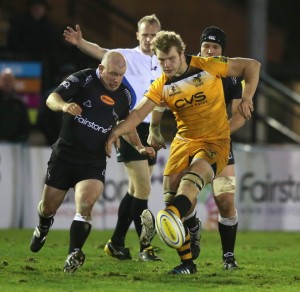By Gavin Mortimer
IN THE wake of victories over Quins and Saracens there’s been a certain amount of gloating in France about what Les Bleus might well do to England next month in Paris. Four years since they last beat the English in the Six Nations, the French are more confident than ever that 1 February will be their day.
Not so fast. Sure, Toulouse had the Man of the Match in Jean-Marc Doussain from their win over Sarries, though their all-French back row of Dusautoir, Picamoles and Nyanga all ran him close. And Brice Dulin, Jean-Marcellin Buttin, Morgan Parra and Wesley Fofana all caught the eye in their team’s performances.
But what about in the trenches, at the coalface, in the engine room, use whatever euphemism you will to describe the front five.
Take a look at the statistics from the weekend’s round of Heineken Cup clashes and if you’re a Frenchman there’s cause for concern. For all the talent and options the French have in some positions, it’s a different story in the tight five.
Of the 35 tight forwards who started for the seven French clubs in the Heineken Cup at the weekend, only 16 are French. More worrying, still, if you’re Philippe Saint-Andre, is that the three clubs that tasted success only fielded four Frenchmen between them in the front five: Toulouse second row Yoann Maestri, the Clermont front-row pair of Thomas Domingo and Benjamin Kayser, and Toulon lock Jocelino Suta. Racing fielded the biggest French contingent with four players, but given their abject defeat at home to the Scarlets, that’s not something to boast about.
Conversely, of the 30 tight forwards who started for the six English clubs at the weekend, an impressive 23 were England-qualified with Harlequins managing to select an entire pack of Englishmen. Saracens had the smallest representation with Mako Vunipola and Steve Borthwick the only players eligible for Stuart Lancaster’s squad. So the fact the Aviva Premiership leaders were so comprehensively beaten up front in Toulouse isn’t as alarming as it might have been from an England perspective, particularly given that the opposition front five contained four southern hemisphere players.
The tight forwards selected in Saint-Andre’s Six Nations squad are the best of a dwindling bunch, but they are also an ageing bunch: Benjamin Kayser is 29, Dimitri Szarzewski 31, Yannick Forestier 32, Nicolas Mas and Pascal Pape both 33 (even in the back row they’re getting on with Nyanga and Dusautoir the wrong side of 30). Of course there is some youth in the French front five with the likes of Yoann Maestri (25) and Stade Francais’s 24-year-old prop Rabah Slimani, but they are the exceptions.
Compare that to England’s Six Nations squad, where of the 18 forwards selected by Lancaster only Exeter loose forward Tom Johnson is over 30 and the front row trio of Mako Vunipola, Henry Thomas and Joe Marler are still in their early 20s.
In addition, France have no locks to compare to the young English duo of Courtney Lawes and Joe Launchbury, players who combine power with almost freakish athleticism. France are likely to rely heavily in the Six Nations on the experienced Pascal Pape, a decent lock but no athlete, and a player with the shortest of fuses, having received five yellow cards in this season’s Top 14.
The reason for this shortage of tight forward talent has been well-documented, both in this column and elsewhere. As the foreign players continue to flood into French rugby, opportunities for homegrown players diminish. The FFR and LNR are addressing the problem – and from next season squads must have 55% of their players eligible for France or face heavy fines – but that will take a few years to bear fruit. In the meantime France are going to have to get by on what they’ve already got in the front five, and pray to Dieu that Mas and Domingo stay fit.








